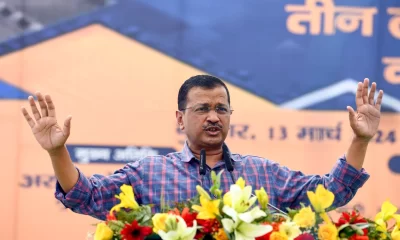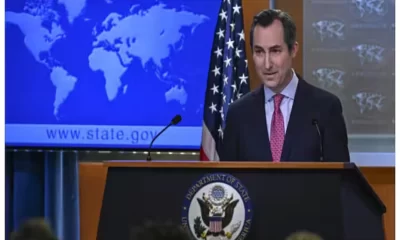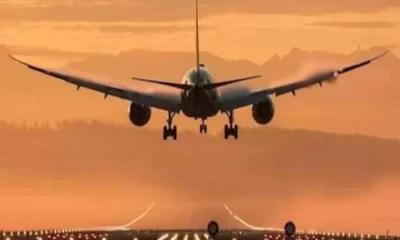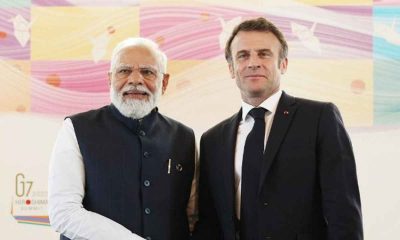Latest world news
Syria: Chemical facility was producing anti-cancer drugs
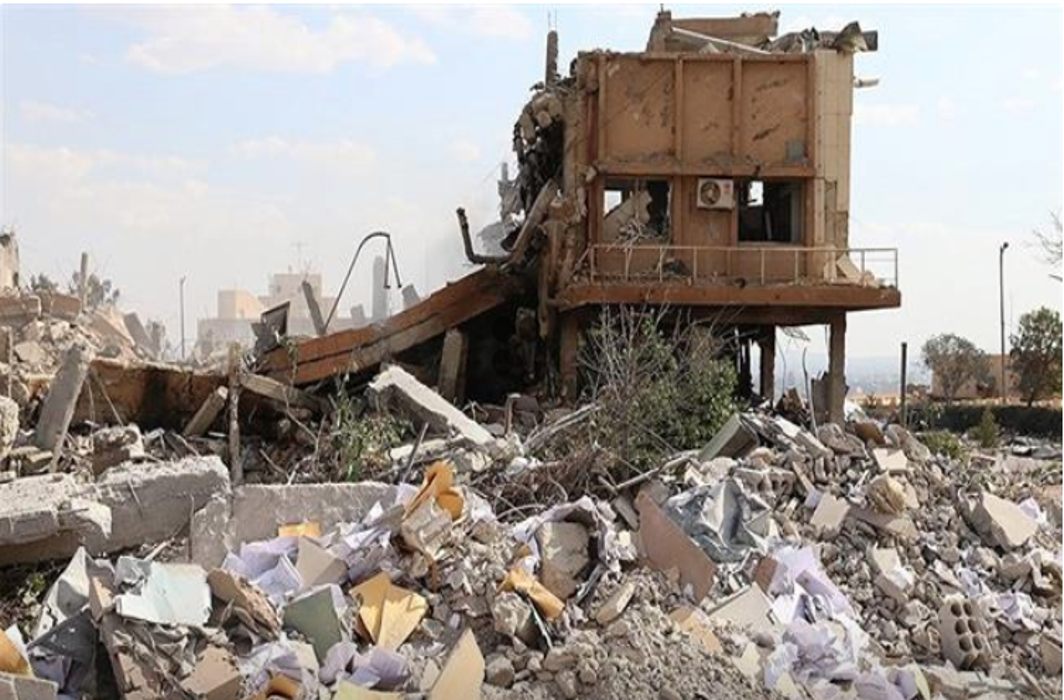
Condemnation and appreciation pours-in
Responding to Friday’s attack on its soil, Syria has condemned “with the strongest terms” the aggression by US, Britain and France and called on the International community and the UN Security Council to strongly condemn the act which can only lead to further ignite tensions and pose threat to the international peace and security.
According to Syrian official news agency SANA, Ministry of Expatriates and Foreign Affairs has, in its letter to UN Secretary General and Chief of UNSC on Saturday on the gross violation of International Law and the UN’s Charter committed by US, Britain and France said, “At 03:55 am (at local time) the US, Britain and France launched a ferocious aggression on Syria through firing 110 missiles towards Syrian targets in Damascus and other Syrian cities and areas, the majority of which were shot downed by the Syrian air defense systems.”
“Some of the missiles hit one of the buildings of the Research Center in Barzeh in Damascus, which includes an educational center and scientific laboratories, causing material damage only while other missiles targeted a military position near Homs were forced to deviate from their tracks, meantime their explosions resulted in the injury of 3 civilians,” added the Ministry.
 The letter further said that “It affirmed that the aggression of western arrogance and hegemony regimes came as a result of the feeling with frustration due to the failure of the conspiratorial project and in response to the defeat of their tools of the terrorist organizations in front of the progress achieved by the Syrian Army”.
The letter further said that “It affirmed that the aggression of western arrogance and hegemony regimes came as a result of the feeling with frustration due to the failure of the conspiratorial project and in response to the defeat of their tools of the terrorist organizations in front of the progress achieved by the Syrian Army”.
Meanwhile Syria’s permanent representative at the UN Dr. Bashar al-Jaafari said that the tripartite US-British-French aggression on Syria came as a revenge for the defeat of these three countries’ terrorist proxies in Ghouta.
Jaafri was speaking during a Security Council session held on Saturday upon Russia’s request to condemn the tripartite aggression. He said that this aggression gives a message to terrorists encouraging them to use chemical weapons again in the future, adding that Syria and its allies and friends will respond to this aggression.
In another interesting development it was revealed that, in contrast to the claim by the western powers of hitting Syria’s chemical weapons program, the facility based in Barzeh district houses “the Institute for Development of Pharmaceutical and Chemical Industries” which is specialised in producing anti-cancer drugs which are direly in short supply amid western sanctions.
According to Tehran based Press TV, Saeed Saeed, head of the institution said the center was previously used by the Organisation of the Prohibition of Chemical Weapons (OPCW) but now works on pharmaceutical products.
“Since the Syria crisis broke out, the country has been short of all kinds of medicines due to the sanctions from Western countries. Foreign companies stopped exporting high-quality medicines to Syria, especially anti-cancer medicines. So we have been conducting researches on anti-cancer medicines here, and three cancer drugs have been developed,” he said.
Reacting to the attacks on Syria, Iran’s Supreme Leader ayatollah Ali Khamenei, has condemned the joint airstrikes by the US, UK and France on Syria as “Crime”, describing the leaders of three western countries as “criminals.”
“I clearly declare that the US president, the French president and the UK prime minister are criminals and have committed a crime,” Khamenei said.
 The three countries, Ayatollah Khamenei said, “will achieve nothing and make no benefit, as they have been in Iraq, Syria and Afghanistan in the past few years, and committed such crimes but have not profited from them.”
The three countries, Ayatollah Khamenei said, “will achieve nothing and make no benefit, as they have been in Iraq, Syria and Afghanistan in the past few years, and committed such crimes but have not profited from them.”
Ayatollah Khamenei is considered to be most powerful leader in the region against US-Israel-Saudi Arabia and their allies’ designs in the region. Iran’s influence has been growing after defeat of terror groups in Iraq and Syria where Iranian military advisors have played important role.
Iran also supports Hamas and Hizbollah, the two most important resistance groups against Israel. Tehran also claims of morally supporting Yemen’s Houthi Ansarullah and the opposition groups in Bahrain.
The Russian military said on Saturday that the three countries fired 103 cruise missiles including Tomahawk missiles at Syria by the Syrian defense systems managed to intercept 71 of them.
Russian President Vladimir Putin severely condemned the attacks saying that the strikes violate the UN Charter and international law. He said that US launched “an aggression against a sovereign state which is at the forefront of the fight against terrorism.”
Israel’s Prime Minister Benjamin Netanyahu reiterated support to US President Donald Trump’s decision saying, “Israel’s support remains unchanged”. He said “A year ago I gave Israel’s total support for President Donald Trump’s decision to mobilize against the use of chemical weapons.”
Saudi Arabia’s foreign ministry issued a statement saying, “Saudi Arabia fully supports the strikes launched by the United States, France and Britain against Syria because they represent a response to the regime’s crimes,”
The statement further said that the strikes were prompted by the “Syrian regime’s use of chemical weapons against innocent civilians, including women and children.”
Turkey and Qatar have also supported the attack on Syria. The Turkish foreign ministry said, “We welcome this operation which has eased humanity’s conscience in the face of the attack in Douma,”
Qatar was the first country among Arab neighbours to react. An official statement expressed support for strikes to stop attacks by the Syrian regime against civilians.
However, Egypt’s foreign ministry expressed “deep concern” saying the strikes undermined the “safety of our brotherly Syrian people, and threatens the understandings reached regarding the de-escalation zones.”
Algerian Foreign Minister Ahmed Ouyahia said his country regretted that the strikes came “at a time when the international community was waiting for an inquiry team to be sent to verify” the chemical arms claims.
“These strikes will create an atmosphere which will weigh negatively on moves to resolve the Syrian crisis through a political settlement,” he said.
Meanwhile, UN Security Council has failed to adopt Russia’s draft resolution condemning the strikes on Syria. It received three votes in favour, eight votes against and four abstentions.
 The draft resolution, read by Russia’s Ambassador at the UN Vasily Nevenzya, condemned the military action and called on the three Western countries to “halt the aggression against the Syrian Arab Republic immediately and without any delay” and refrain from further use-of-force actions in violation of the UN Charter.
The draft resolution, read by Russia’s Ambassador at the UN Vasily Nevenzya, condemned the military action and called on the three Western countries to “halt the aggression against the Syrian Arab Republic immediately and without any delay” and refrain from further use-of-force actions in violation of the UN Charter.
The UN Secretary General Antonia Guterres had earlier said “I urge all member states to show restraint in these dangerous circumstances and to avoid any acts that could escalate the situation and worsen the suffering of the Syrian people.”
CNN on Sunday uploaded a video showing the damages incurred on the alleged facility producing chemical weapons. However, Press TV video shows the same damaged structure claiming it to be a pharmaceutical plant producing anti-cancer drugs.
The airstrikes by US, Britain and France on Syria has also triggered wave of protests in several countries including US, Britain and France. Participants in the protests included Syrian refugees and the local citizens.
Latest world news
Bigg Boss 14 contestant Rahul Vaidya struggles walking in knee deep water, compares Dubai rains with Mumbai floods
Singer and TV personality Rahul Vaidya was recently stranded in the Dubai rains.

Rahul Vaidya, who was in Dubai ahead of his show which was scheduled to take place today, left the country due to heavy rains and reached Kolkata. The artist shared on social media his encounters in the UAE city, including challenges like walking through knee-deep water. Rahul provided an update regarding the heavy rainfall in Dubai on his Instagram profile.
The Bigg Boss 14 contestant revealed that he was in Kolkata and prepared to do an evening performance. Recalling the terrifying period he went through, Vaidya said there was a lot of confusion and panic in Dubai. The situation was similar to that when heavy floods hit Mumbai in 2005.
Vaiday also posted seval other images and videos of cars that were underwater and flooded roadways. The Bigg Boss 14 contestant, who shared his ordeal, claimed that even though it had just rained for two hours, the situation was dire.
In one of the video, which went viral he can be seen struggling in walking in knee-deep water. He can be also seen holding his sneakers in one hand and with other hand he was seen managing other things.
This is the result of the two hours of rain that it had, he can be heard saying in the video. Vidya also said he dosen’t believe Dubai is accustomed to a lot of rain. Everything had stopped working, he remarked.
After taking part in the first season of the singing reality show Indian Idol, Rahul Vaidya gained widespread recognition. In addition to Bigg Boss, he took part in Khatron Ke Khiladi 11.
Meanwhile, heavy rains that triggered flooding in the UAE and Bahrain, which left 18 people dead in Oman on Sunday and Monday, have paralyzed the financial hub of the Middle East, Dubai.
A lot of incoming flights were diverted from Dubai’s international airport because of the rain. At 7:26 p.m., the busiest airport in the world for foreign visitors stopped accepting new arrivals; a gradual resumption was announced for more than two hours later.
Images of planes navigating flooded tarmacs are making the rounds on social media.
According to pictures shared on social media, the flagship malls Dubai Mall and Mall of the Emirates both experienced heavy floods, while at least one Dubai Metro station had water up to the ankles.
There were several road collapses, severe flooding in residential areas, and numerous reports of leaks from windows, doors, and roofs.
Due to the unfavourable weather, schools around the United Arab Emirates were forced to close, and as more storms are predicted, the closures are anticipated to last until Wednesday. The government of Dubai allowed its staff to work remotely till this Wednesday.
Latest world news
Dubai sky turns green during storm in UAE, video goes viral
The UAE witnessed record-breaking rainfall on Tuesday and the National Centre of Meteorology recorded 254 mm of rainfall in less than 24 hrs in the Khatm Al Shakla area in Al Ain.

1 person was killed in UAE as it witnessed heavy rainfall on Tuesday, stranding commuters, flooding roads, disrupting trains and flights and resulting in water leakage from mall ceilings. The UAE witnessed record-breaking rainfall on Tuesday and the National Centre of Meteorology recorded 254 mm of rainfall in less than 24 hrs in the Khatm Al Shakla area in Al Ain. It is being said that the rainfall was the highest documented since the start of data collection in 1949.
The heavy rainfall in UAE came days after a similar situation in neighbouring Oman, where 13 people were killed in flash floods. Many parts of Oman saw torrential rains, which caused students to be trapped in buses and swept away motorists and trapped people in their homes.
Videos from Dubai circulating on social media showed widespread waterlogging on roads in Abu Dhabi, Dubai and other important cities. This left daily commuters in cars and other vehicles struggling to get back home. Dubai metro station too was seen flooded and closed.
One such video circulating on social media shows the aerial view of the city of Dubai from the top of a building. In the video the stormy winds are seen blowing over the city of Dubai. As the storm intensifies the Dubai sky turns green and ultimately gets covered by heavy rainfall. The video has gone viral on social media with more than 1.1 million views.
Another video showed water leakage from the ceilings of shopping malls, flooding the floors and destroying goods. A video which was shot in the famous Mall of the Emirates, showed pieces of ceiling falling as the rainwater gushed inside. Videos from many outlets of the Deira City Centre mall chain showed escalators being rendered unusable. Majid Al Futtaim, the company which owns the Mall of Emirates, said that the shopping complexes have been kept open and the customers are being sent away from the flooded areas.
India News
Sri Lankan Minister Douglas Devananda says statements on reclaiming Katchatheevu island from Sri Lanka have no ground
Devananda told the media on Thursday that it is not unusual to hear such claims and counterclaims about Katchatheevu as elections are taking place in India.
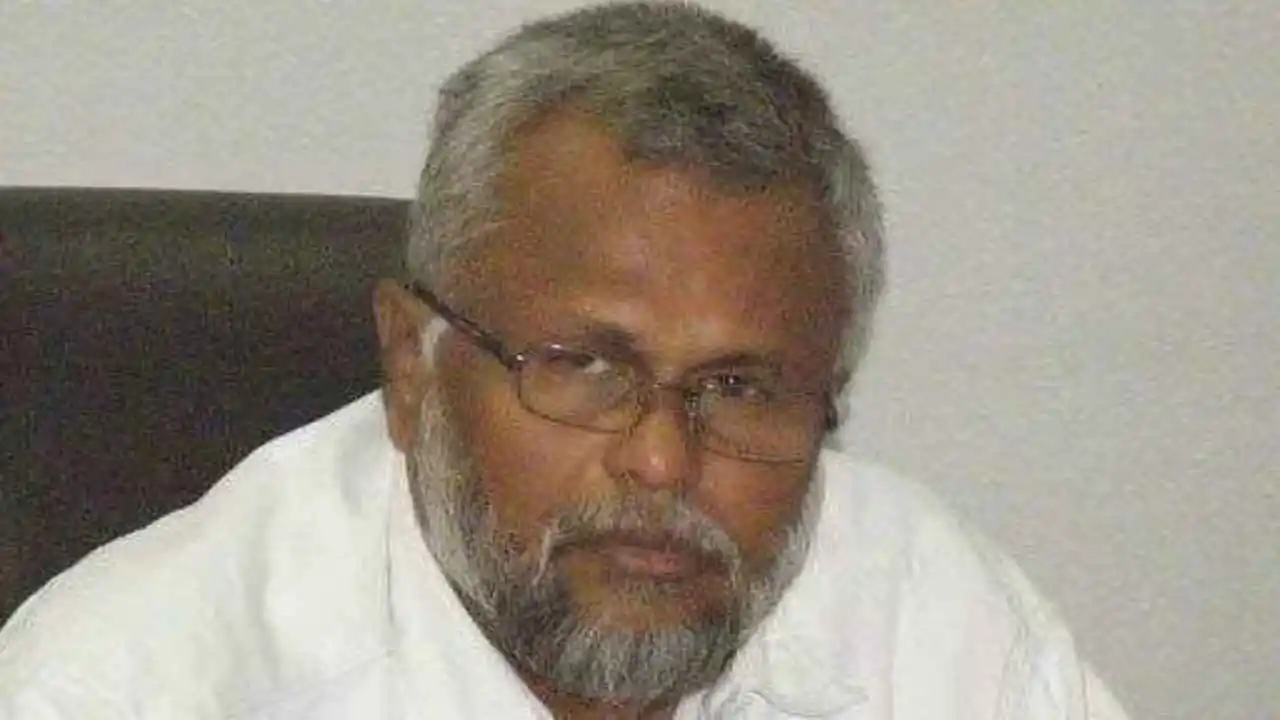
Sri Lankan Minister Douglas Devananda has said the statements from some political leaders in India on reclaiming Katchatheevu from the island nation have no ground. He told the media on Thursday that it is not unusual to hear such claims and counterclaims about the strategic island as elections are taking place in India.
The Sri Lankan Minister said he thought India is acting on its interests to secure this place to ensure Sri Lankan fishermen would not have any access to that area and that Sri Lanka should not claim any rights in that resourceful area. According to the 1974 agreement, Devananda said Indian and Sri Lankan fishermen can go fishing in the territorial waters of both countries until the pact was reviewed and amended in 1976.
The amended agreement resulted in fishermen from both countries being barred from fishing in neighboring waters. India’s ministry of External Affairs (MEA) on Thursday steered clear of the row surrounding Katchatheevu island. To a volley of questions on the Katchatheevu issue, MEA spokesperson Randhir Jaiswal reffered to External affairs Minister S Jaishankar’s recent comments on the matter.
He said he would like to talk about the issue that has been raised. He added the External Affairs minister has spoken to the press here in Delhi and also in Gujarat and has clarified all the issues. He said everyone should look into the press engagements and they would find the answers to their questions there.
The remarks from Devananda, a Sri Lankan Tamil, came days after the Narendra Modi government accused the Congress and its ally DMK in Tamil Nadu of overlooking national interests by handing over Katchatheevu island to Sri Lanka in 1974. The BJP has also been slamming the 2 parties for not ensuring the rights of the fishermen wanting to fish in waters around the island.
-

 Cricket news8 hours ago
Cricket news8 hours agoIPL 2024: Lucknow Super Giants beat Chennai Super Kings by 8 wickets
-
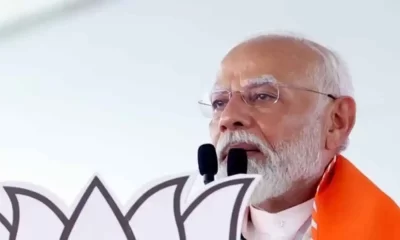
 2024 Lok Sabha Elections7 hours ago
2024 Lok Sabha Elections7 hours agoPrime Minister Narendra Modi takes dig at Rahul Gandhi, says like Amethi, Congress will lose its ground from Wayanad also
-
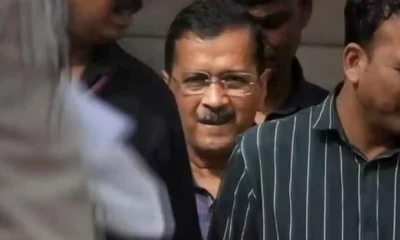
 India News3 hours ago
India News3 hours agoAAP leader Saurabh Bharadwaj says a conspiracy is underway for slow death of Arvind Kejriwal
-
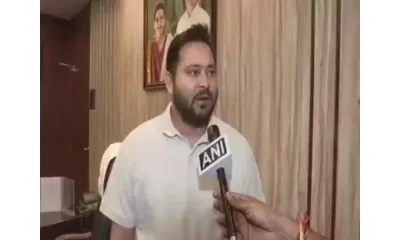
 2024 Lok Sabha Elections6 hours ago
2024 Lok Sabha Elections6 hours agoRJD leader Tejashwi Yadav says BJP’s 400 paar film has become a super flop on the first day itself
-
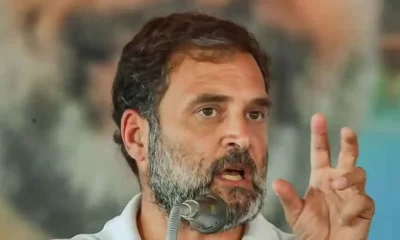
 2024 Lok Sabha Elections5 hours ago
2024 Lok Sabha Elections5 hours agoRahul Gandhi says BJP will not get more than 150 seats in Lok Sabha elections
-
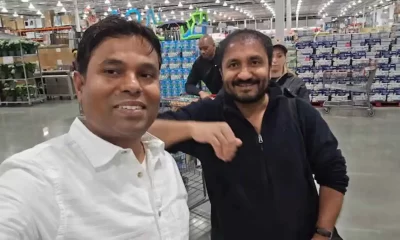
 Education27 mins ago
Education27 mins agoSuper 30 founder Anand Kumar has heartwarming encounter with ex-student in USA, post goes viral
-
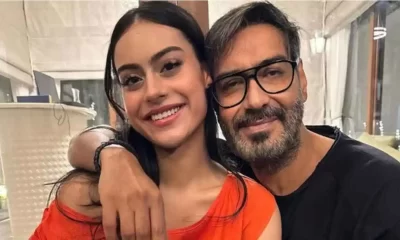
 Entertainment2 hours ago
Entertainment2 hours agoBollywood star Ajay Devgn shares emotional birthday post on his daughter Nysa Devgan’s 21st birthday

